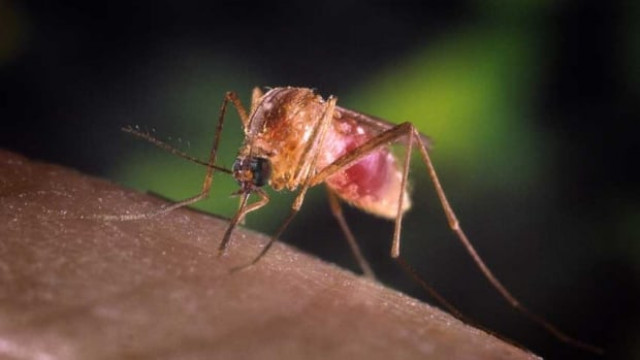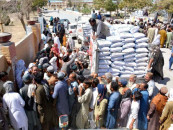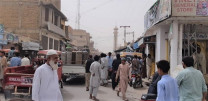‘Bed nets’ sold in open market as Malaria cases on the rise: WHO
80 per cent of total Malaria cases were reported from Fata and Balochistan

PHOTO: REUTERS
Speaking during a consultative session for expert dealing with the disease on World Malaria Day, Dr Ardakani stressed on the gaps hurdling the programme's objective. "It is very simple to distribute pamphlets but you don’t know the actual ground situation since I know the bed nets are available in the market."
He said the bed nets distributed by WHO as prevention against mosquitoes were, in some cases, being sold in the open market while others were using them to cover windows - emphasising that the lack of knowledge ran so deep that people were simply not aware of the use of bed nets.
Three countries to pilot world's first malaria vaccine
Adakani spoke about the importance of community involvement, a prerequisite to ensuring the effectiveness of the programme. “I have spent time here and I know [this] community does not demand money but recognition in exchange for being involved in awareness against the parasitic infection,” he said.
He said health workers should make preventative measures, diagnosis, treatment and follow ups accessible to the public. “Rapid diagnosis is possible only at a few labs but not at all facilities, which is unacceptable," he told the audience at the session arranged by Association for Community Development.
He asked participants for their suggestions to help increase awareness regarding the disease. “Tell us what else we can do in this regards.”
The WHO official listed internal conflicts, movement and ‘lack of competency’ among the reasons for an increase in the annual index of Malaria cases specifically in tribal areas. Around 84, 000 people had tested positive for Malaria Parasite in 2016. He said it was alarming that 10 out of 66 high risk districts across the country were from the tribal areas, adding that 80 per cent of the total Malaria cases were reported from Fata and Balochistan.
DNA offers hard evidence of malaria in Roman Empire
He urged those involved in Malaria control programmes to reflect on the reasons that led to an increase in the annual index compared to last year.
Also present at the event was Director Health Service of Fata, Dr Jawad Habib, who said financial constraints, lack of access to proper facilities and inadequate health facilities were creating problems for overcoming the infection.
He also pointed out that some seven per cent of the total amount in the annual development program was allocated for the health sector in the tribal areas adding that monitoring and evaluation was the weakest since Fata was not an easy place to work in.


















COMMENTS
Comments are moderated and generally will be posted if they are on-topic and not abusive.
For more information, please see our Comments FAQ